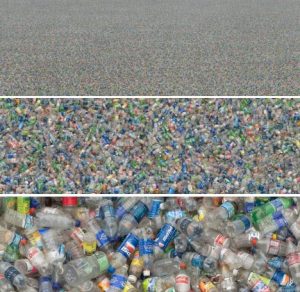 In a first-ever lawsuit, the California Attorney General alleges that three companies have falsely claimed that their water bottles are “100% biodegradable and recyclable.”
In a first-ever lawsuit, the California Attorney General alleges that three companies have falsely claimed that their water bottles are “100% biodegradable and recyclable.”
In 2008, the California Legislature passed a law that prohibits food or beverage containers labeled with biodegradable, degradable, or decomposable, or anything that suggests that a food or beverage container will break down, fragment, biodegrade, or decompose in a landfill or other environment. Any claim must be substantiated by scientific evidence that all the materials in the package will break down into usable compost in a timely manner.
The suit claims that ENSO, Balance, and AquaMantra were illegally selling, or participating in arranging the sale of plastic beverage containers in or into California.
Attorney General Kamala Harris said, “These companies’ actions violate state law and mislead consumers. Californians are committed to recycling and protecting the environment, but these efforts are undermined by the false and misleading claims these companies make when they wrongly advertise their products as ‘biodegradable.’”
In one case, ENSO claims that their bottle is biodegradable and recyclable. The product labeling states that it combines a specially formulated microbial additive to standard polyethylene plastic. However, the additive is considered a destructive contaminant according to the Association of Postconsumer Plastic Recyclers, and cannot be processed in a standard PET recycling stream.
Harris believes that the misrepresentation may lead consumers to either dispose of the bottles incorrectly, thinking they will biodegrade quickly, or try to recycle them, creating problems and costs for recyclers.
You may be surprised to learn that the 2009 single-use PET bottle recycling rate averaged 70% in Canada, and only 31% in the United States. FactsOnPET.com demonstrates the importance of recycling with these statistics:
• 5 PET bottles would be required to provide enough fiber to make one extra large T-shirt or fill one ski jacket with insulation
• 15% of recycled PET is used for plastic cords or strapping
• 21% of recycled PET is used to make new plastic containers
• 54% of recycled PET is used to manufacture fiber for carpet and clothing
• 50% of all polyester carpet made in the United States is from recycled PET
Remember, the 3 ‘R’s of recycling are Reduce, Reuse, Recycle–and they’re listed in that specific order for a reason. First, reduce consumption as much as possible, then reuse containers (like reusable water bottles) whenever possible. If you must use a single use plastic, choose something that is recyclable and don’t forget to recycle it!
If everyone started carrying reusable water bottles, we wouldn’t have to worry about where all the rubbish goes…
